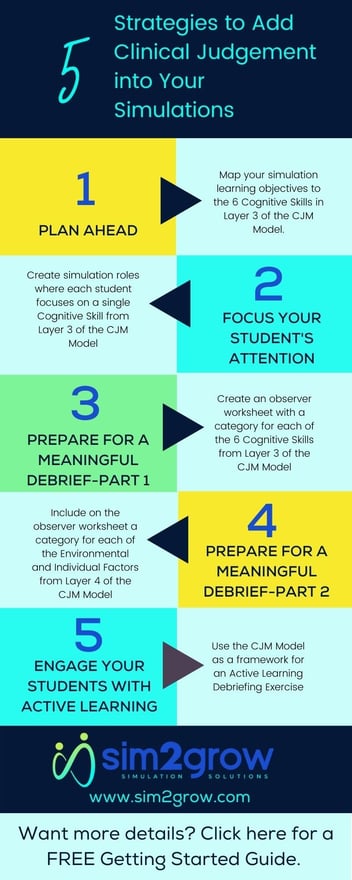
Student nurses need skill practice in a safe simulated environment before performing procedures on human patients in clinical settings. Developing student expertise is the goal of nursing educators. Providing learners with deliberate practice opportunities to repeat a new skill in conjunction with immediate specific performance feedback is ideal to gain expertise. Students proficient in their technical skills have decreased cognitive load and an increased capacity to devote their attention to other cognitive tasks. The problem remains, however: what is an efficient and effective method to acquire technical skills?
Nursing school curriculum typically includes learning patient care skills with a return demonstration shortly thereafter. When a period of time passes between the student successfully completing a skills checkoff and the next occasion to perform the procedure, skill degradation is often noted. The fact that the student demonstrated the skill at one point in time does not necessarily indicate proficient performance of that skill at a further date. This leads to questions concerning the utility of the checkoff. The skills check off process is challenging for everyone involved. Students arrive white knuckled and nervous with fear of dismissal from the program. Faculty reluctantly spend hours on end observing the checkoffs, only to see a semester or two later many students no longer perform these same skills at an acceptable level. Finally, there are many logistical challenges associated with repeat evaluations of a large number of students and the need to secure time, space and supplies for the re-evaluation. We implemented a novel approach by using peer-mentors as faculty extenders in the skills check off process. There were several benefits to this tactic. Students, peer-mentors and faculty all gained from this shift in paradigm. Students experience a less stressful check-off encounter while still being held accountable to submit video documentation of the skill performance. Peer-mentors gain experience in providing feedback to colleagues and refamiliarize themselves with the procedures learned earlier in their education that may otherwise have degraded over time. Faculty can focus more time on remediating students who struggle with a particular skill. It was a win for all involved.
The process started during the first week of each semester with an upper-level peer mentor training. The 1.5-hour training provided logistical details and expectations for providing student feedback. It also provided a group experience in rating three sample videos. Peer-mentors became familiar with the checklist tools and practiced inter-rater reliability.
As the semester unfolded students were taught technical skills with multiple educational modalities to accommodate various learning styles. Students viewed faculty-produced training videos prior to their assigned lab day. Faculty provided written procedural steps to the students along with a didactic presentation. Students spent eight hours of hands-on practice time in the labs under the supervision of faculty to provide feedback following deliberate practice principles. Students then were required to practice in open lab prior to signing up for a return-demonstration.
When it was time for return demonstrations, instead of scheduling time with a faculty member, students worked with two upper-level peer-mentors to demonstrate the skill. One mentor recorded the skill on a nursing lab iPad while the other mentor was tasked with following along on the checklist and providing immediate verbal feedback to the student after the performance. Students had a choice of submitting the performance checklist and video for faculty review or deleting the video and rescheduling for another session with the peer mentors. Faculty would review all checklists and spot check videos that were submitted.
Recruiting student nurse peer-mentors as faculty extenders while leveraging technology can make a world of difference in the skills check off experience. The beneficiaries of this change in approach include nursing students, upper-level peer mentors, faculty, and simulation lab staff. More details about this process are in the article published in the Clinical Simulation in Nursing journal.
If you are interested in receiving complimentary tips to enhance your simulation program sign up today!
Gabriele, K. M., Holthaus, R. M., & Boulet, J. R. (2016). Usefulness of Video-Assisted Peer Mentor Feedback in Undergraduate Nursing Education. Clinical Simulation in Nursing, 12(8), 337–345. https://doi.org/10.1016/j.ecns.2016.03.004



